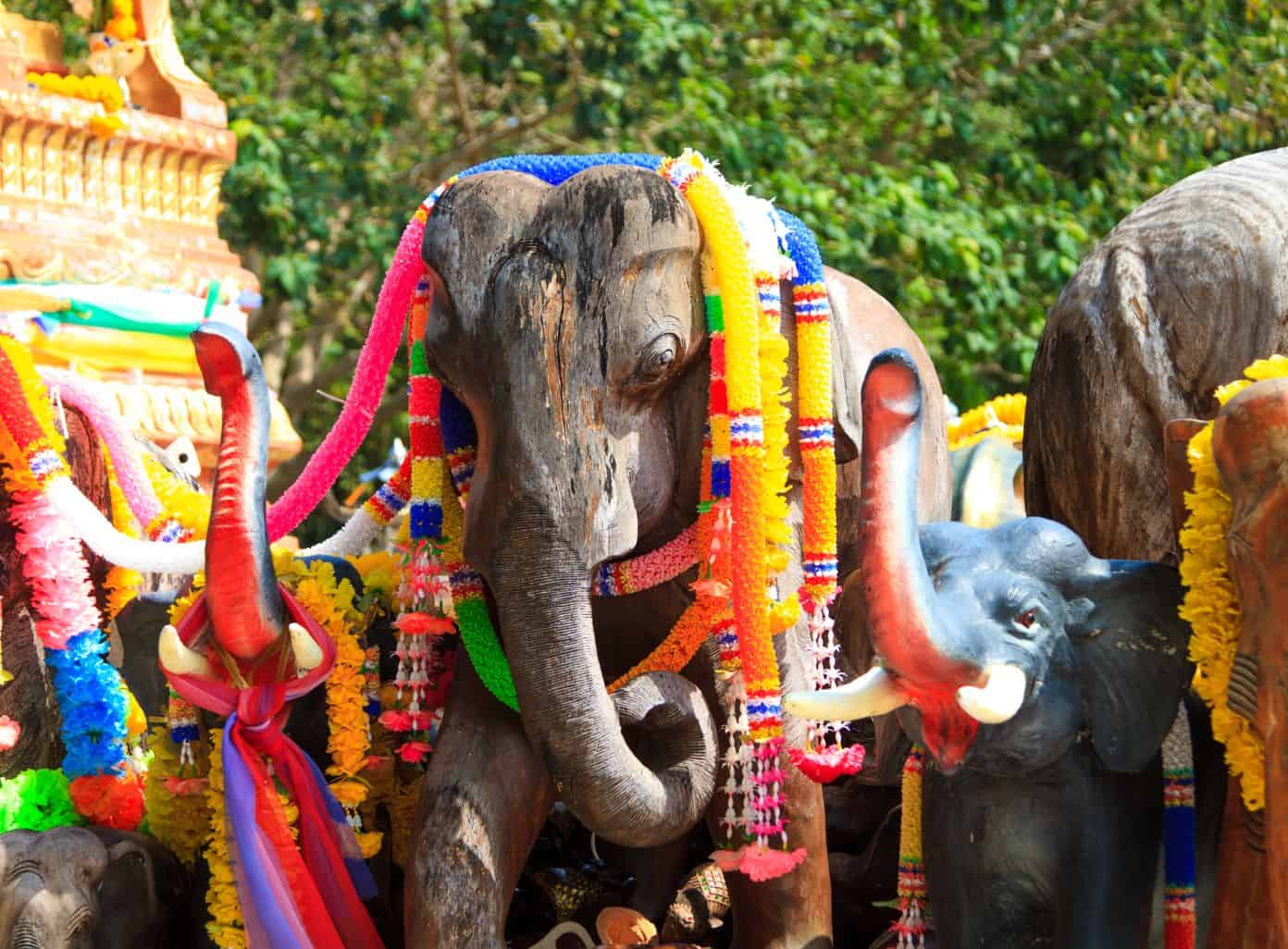Phuket, a tropical paradise known for its stunning beaches and vibrant nightlife, is also home to a large population of elephants. These majestic creatures have long been a part of Thailand’s rich cultural heritage, but sadly, they face numerous threats and challenges due to the growing demand for elephant tourism. As a responsible traveler, it is important to understand the importance of elephant conservation and how to support ethical practices when experiencing elephant tourism in Phuket.
Understanding the Importance of Elephant Conservation

Elephants play a crucial role in Thailand’s ecosystem, and their conservation is vital for maintaining the balance of nature. These gentle giants are considered keystone species, meaning they have a disproportionately large impact on their environment relative to their abundance.
One of the key contributions elephants make to their ecosystem is seed dispersal. As elephants roam through forests, they consume a wide variety of plant species. When they excrete the undigested seeds, they are spread across different areas, aiding in the regeneration and growth of vegetation. This process is essential for maintaining healthy forests and supporting the diverse array of species that rely on them.
In addition to seed dispersal, elephants also play a crucial role in shaping their environment. Their sheer size and strength allow them to create pathways in dense forests, breaking through thick vegetation and making it easier for other animals to navigate. These pathways not only benefit smaller animals but also help maintain the overall connectivity of different habitats, allowing for the exchange of genetic material and promoting biodiversity.
Without elephants, ecosystems would suffer and face irreparable damage. The loss of seed dispersal and the absence of their pathway creation would disrupt the delicate balance of nature, leading to a decline in plant diversity and negatively impacting other animal species that rely on the interconnected web of life.
Despite their significance, elephant populations in Thailand are facing numerous threats. Deforestation, driven by human activities such as agriculture and urbanization, is rapidly destroying their natural habitat. As forests are cleared to make way for palm oil plantations or infrastructure development, elephants are left with fragmented and isolated patches of land, making it challenging for them to find sufficient food and resources.
Furthermore, poaching for ivory and illegal wildlife trade pose significant dangers to elephant populations. The demand for ivory products continues to fuel the illegal killing of elephants, leading to a decline in their numbers. It is estimated that one elephant is killed every 15 minutes for its ivory tusks, highlighting the urgent need for conservation efforts.
Addressing these threats and working towards the conservation of elephants is crucial for the future of these magnificent creatures. Efforts such as establishing protected areas, implementing stricter anti-poaching measures, and promoting sustainable land-use practices are essential steps in ensuring the survival and well-being of elephants in Thailand.
Moreover, raising awareness about the importance of elephant conservation among local communities and tourists is crucial. By educating people about the ecological role of elephants and the threats they face, it is possible to foster a sense of stewardship and inspire collective action to protect these iconic animals.
In conclusion, the conservation of elephants in Thailand is of utmost importance. Their role as keystone species, contributing to seed dispersal and shaping their environment, cannot be overstated. By addressing the threats they face and implementing effective conservation strategies, we can ensure the continued existence of these magnificent creatures and the preservation of Thailand’s rich biodiversity.
The Elephant Tourism Industry in Phuket

Phuket, like many other tourist destinations in Thailand, has seen a rise in elephant tourism in recent years. Sadly, this industry has a dark side that many visitors are unaware of. Traditional practices, such as riding elephants or watching them perform in circuses, often involve cruelty and exploitation. These practices not only harm the elephants but also perpetuate their mistreatment by supporting the demand for such activities.
However, there is a glimmer of hope in the form of ethical elephant tourism. This growing movement seeks to provide a more responsible and sustainable approach to appreciating these magnificent creatures. By supporting genuine elephant sanctuaries and adopting ethical practices, we can make a positive impact on the lives of these majestic creatures while enjoying an unforgettable experience.
How to Identify Ethical Elephant Sanctuaries
When planning your visit to an elephant sanctuary in Phuket, it is essential to ensure that you choose an ethical facility that prioritizes the well-being of the elephants. Here are some signs to look out for:
- A focus on education and conservation: Genuine sanctuaries prioritize raising awareness about elephant conservation and the importance of ethical practices.
- Observation, not exploitation: Ethical sanctuaries allow you to observe elephants in their natural habitat without subjecting them to harmful activities, such as riding or performing tricks.
- Responsible interaction: Sanctuaries should promote respectful interaction, allowing visitors to feed elephants or wash them, while maintaining a safe distance and ensuring the well-being of both elephants and humans.
On the other hand, there are some red flags to watch out for when selecting an elephant sanctuary:
- Offering elephant rides: Riding elephants may seem like a thrilling experience, but it often involves cruel training methods that cause immense suffering for these gentle giants.
- Performing circus-style tricks: Elephants should not be forced to perform unnatural behaviors for entertainment purposes.
- Chaining or mistreating elephants: Ethical sanctuaries provide spacious and natural environments where elephants are not chained or mistreated.
Experiencing Elephant Tourism Responsibly
Once you have chosen an ethical sanctuary to visit, it is essential to be mindful of your behavior and interactions with the elephants. Here are some tips to ensure a responsible experience:
First and foremost, always follow the sanctuary’s guidelines and instructions. These guidelines are in place to protect both the elephants and the visitors. Approaching elephants should be done cautiously and quietly, without sudden movements or loud noises. It is also crucial to respect the elephants’ personal space and refrain from touching or feeding them outside designated areas.
During your visit, you may have the opportunity to witness elephants engaging in natural behaviors such as bathing or foraging for food. Remember that you are a guest in their home, and it is important to observe these behaviors without disrupting or interfering with them in any way.
Promoting Responsible Elephant Tourism
By spreading awareness about ethical elephant tourism, we can encourage more people to make responsible choices when visiting Phuket or any other destinations that offer elephant experiences. Sharing experiences, photographs, and stories on social media platforms can be an effective way to educate others and showcase the beauty of ethical elephant tourism.
Additionally, supporting local organizations and initiatives dedicated to elephant conservation can have a profound impact. Donations, volunteering, or participating in community outreach programs are all meaningful ways to contribute to the well-being and protection of elephants in Phuket.
Conclusion
Caring for elephants in Phuket goes beyond just a tourist experience. It is about understanding the importance of these magnificent creatures in the ecosystem, advocating for their welfare, and supporting ethical practices. By choosing to visit genuine elephant sanctuaries and adopting responsible behavior, we can contribute to the conservation of elephants and help ensure their survival for generations to come. Let us be responsible travelers and embrace the beauty of elephants in a way that respects and honors their presence in Phuket.

